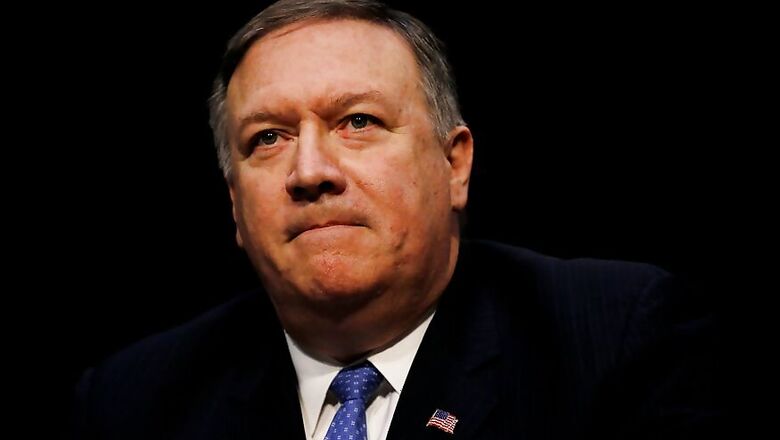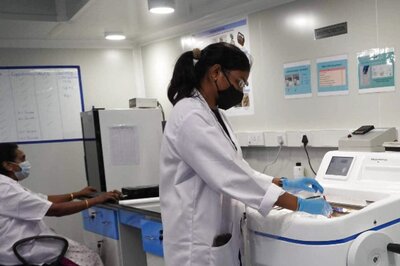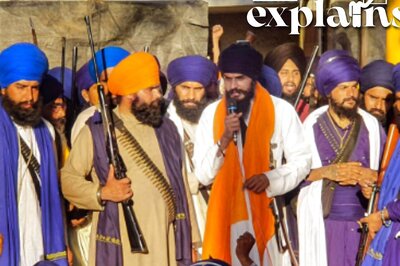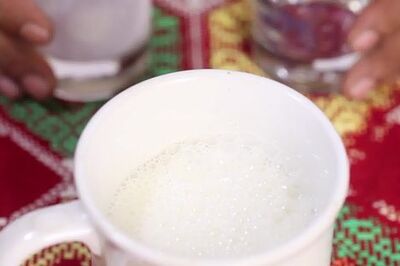
views
A senior State Department official said Thursday that the United States was disappointed by China’s attitude at a meeting between Secretary of State Mike Pompeo and a top Chinese diplomat in Hawaii this week.
Assistant Secretary of State for East Asia and Pacific Affairs David Stilwell said the Chinese were not “really forthcoming” during Pompeo's closed-door talks on Wednesday with Yang Jiechi, the Chinese Communist Party's top foreign affairs official. The meeting was held at Honolulu's Hickam Air Force Base and coverage of it other than from official statements was not possible.
Although he said the Chinese had made a “very clear commitment” to following through on the first phase of a trade agreement reached with the Trump administration last year, Stilwell said there was little sign of progress on other issues of dispute that have sent relations between Washington and Beijing to new lows.
China has become a key element in the 2020 presidential campaign with President Donald Trump and his supporters seeking to make the administration’s tough stance with Beijing a main foreign policy selling point. Trump and his campaign have sought to portray eventual Democratic nominee Joe Biden as soft on China.
And, following revelations from former national security adviser John Bolton that Trump may have been less hard on China than he presents, the president tweeted on Thursday that “the U.S. certainly does maintain a policy option, under various conditions, of a complete decoupling from China.”
For his part, Pompeo said in a statement issued late Thursday that he had “not read the book, but from the excerpts I’ve seen published, John Bolton is spreading a number of lies, fully-spun half-truths, and outright falsehoods.” He referred to Bolton as a “traitor who damaged America by violating his sacred trust with its people."
Stilwell would not be specific about the contentious issues discussed in Hawaii. He told reporters in a conference call that he wanted to leave the Chinese “diplomatic space” to change course on several matters. But he said they broadly revolve around long-standing U.S. complaints about Chinese behavior.
Those include the Chinese response to the coronavirus outbreak, human rights, China’s policies in Hong Kong, its increasing aggressiveness and most recently its actions along its borders with India, where there have been deadly clashes between the two militaries.
China “could not be described as really forthcoming in all this," Stilwell said. He took issue with the Chinese foreign ministry's description of the meeting, calling it “very one sided," and “shrill and not realistic."
The ministry's statement included a litany of complaints about U.S. activities and attitudes, including Trump's signing of a bill authorizing sanctions to be imposed on Chinese officials for violating the human rights of minorities in western Xinjian province.
Stilwell said Pompeo had made very clear to the Chinese that the relationship must be “more reciprocal” and suggested that the world watch Beijing's actions over the next several weeks to see if they had understood the message.
He said the meeting was organized in part “to help the Chinese get to understand that their actions are working against them. They need to reassess the direction they are going."
On the coronavirus pandemic, Stilwell said Pompeo stressed the importance the U.S. attaches to China opening up all its data and information about the outbreak that originated in the city of Wuhan. “We insist on the Chinese disclosing all they know about how this pandemic began,” Stilwell said.
Pompeo also reiterated to the Chinese that Trump is prepared to let a key nuclear arms control agreement with Russia expire unless it can be renegotiated to include China. China has thus far refused to take part.
“We are looking for positive engagement in high-level arms talks,” Stilwell said. “We would encourage them. We would like them to participate in these talks to prevent an unfortunate outcome.”
Wednesday's meeting in Hawaii got underway just as the revelations from Bolton's book were emerging. Neither the State Department nor Stilwell would comment specifically on Bolton's claims that Trump sought China’s help in winning reelection in 2020 and that he encouraged Chinese leader Xi Jinping to build concentration camps for Uighur Muslims in western China.




















Comments
0 comment